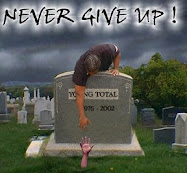Wednesday, January 18, 2012
Wednesday, January 11, 2012
Politics Today
Winning Our Future | King of Bain "When Mitt Romney Came To Town" [Trailer]
NOW THE POLITICAL FIGHT REALLY BEGINS ANEW. CHECK OUT THIS ADD BY APPARENT GINGRICH SUPPORTERS -- ACCORDING TO THE PRELIMINARY ARTICLE. IT'S ABOUT TO GET "HOT" UP IN HEAH!
Tucson Survivors Share their Stories One Year Later
NOW THE POLITICAL FIGHT REALLY BEGINS ANEW. CHECK OUT THIS ADD BY APPARENT GINGRICH SUPPORTERS -- ACCORDING TO THE PRELIMINARY ARTICLE. IT'S ABOUT TO GET "HOT" UP IN HEAH!
Tucson Survivors Share their Stories One Year Later
Saturday, January 7, 2012
What Next for the Occupiers?
What Next for the Occupiers?
by Bill McKibben
One of the highlights of the fall for me was undertaking a kind of Occupy tourism. I was spending most of my time on the move, working to build the broad coalition that eventually won at least a temporary victory against the proposed Keystone XL pipeline from the tar sands of Alberta. In almost every city I visited, I tried to stop by the local encampment, in part because Occupiers were among our most reliable allies, and in part because it was so much fun.
I’ve gotten to speak through the human microphone in lower Manhattan and tour the D.C. campsite just a few blocks from the White House. But I’ve also gotten to sign the copies of my books in the library tent at Occupy Boston (a quiet tent, staffed by honest-to-God librarians from Boston Public Library, with everything arranged by subject). I even made it to foreign occupations—standing beneath a giant stone lion in the grand Vancouver encampment. Happiest occupation goes to San Luis Obispo, California, where I got a hug from a fellow with a huge “Free Hugs” sign. The most chic, not surprising, was Santa Fe, New Mexico, where they arranged not only a campfire for my talk, but a rising full moon in the desert sky.
There are many things they seemed to hold in common, not least an instinctive nonviolence, contrasting so sharply with the police, who so often let the logic of force drive their actions (and found out, as often in history, that the logic that works with criminals doesn’t really apply to idealists). And there was also an instinctive kindness and openness. Many of the encampments, for instance, had attracted homeless people. Since I used to run a homeless shelter in the basement of my church, and in fact lived for a period of time as a homeless man on the streets of New York, I was struck by what a good place to be homeless these camps were. They offered food, safe companionship, and also a kind of purpose, the thing most lacking in the hard and aimless life of the vagrant.
I was also struck by their refusal to simply announce a set of demands. Occupiers aren’t dumb—they’ve read and heard the many calls from the media and politicians that they simply say what they want. It would be easy enough—but in some sense it would detract from the greatest usefulness of the campaign, which has been to articulate a sense of despair bordering on rage. Because they didn’t quickly say “we want this bill passed,” commentators have had to grapple with the actual message of many Occupiers: Our economy is unfair. It gives too much power to corporations, who abuse that power for their own ends. They’ve not just cheated us financially; they’ve cheated us out of our democracy.
There’s no single bill that can address all that (though I wouldn’t be surprised to see many Occupiers start to coalesce around a drive to amend the Constitution so that corporations no longer are treated as people). It’s a mood, an analysis, a kind of citizen journalism. Hopefully it will last.
It won’t be easy—the authorities and the elements are closing down and closing in on many of the campsites. But here’s one place where those of us with a religious background may be of some small use. No good Christian confuses church with a building. Yes, we have buildings called churches that we occupy on occasion, usually Sunday morning. But church is much larger than that—it’s what we do in the world around us. Real church comes when we work together toward some broader end. I’m not suggesting Occupy is a religion; many involved would rightly rebel at the idea. But it is, at least in some sense, an outlook—a strong and necessary outlook that will thrive even in diaspora.
Bill McKibben is the Schumann Distinguished Scholar at Middlebury College in Vermont and initiator of the Tar Sands Action campaign.
Subscribe to:
Comments (Atom)























